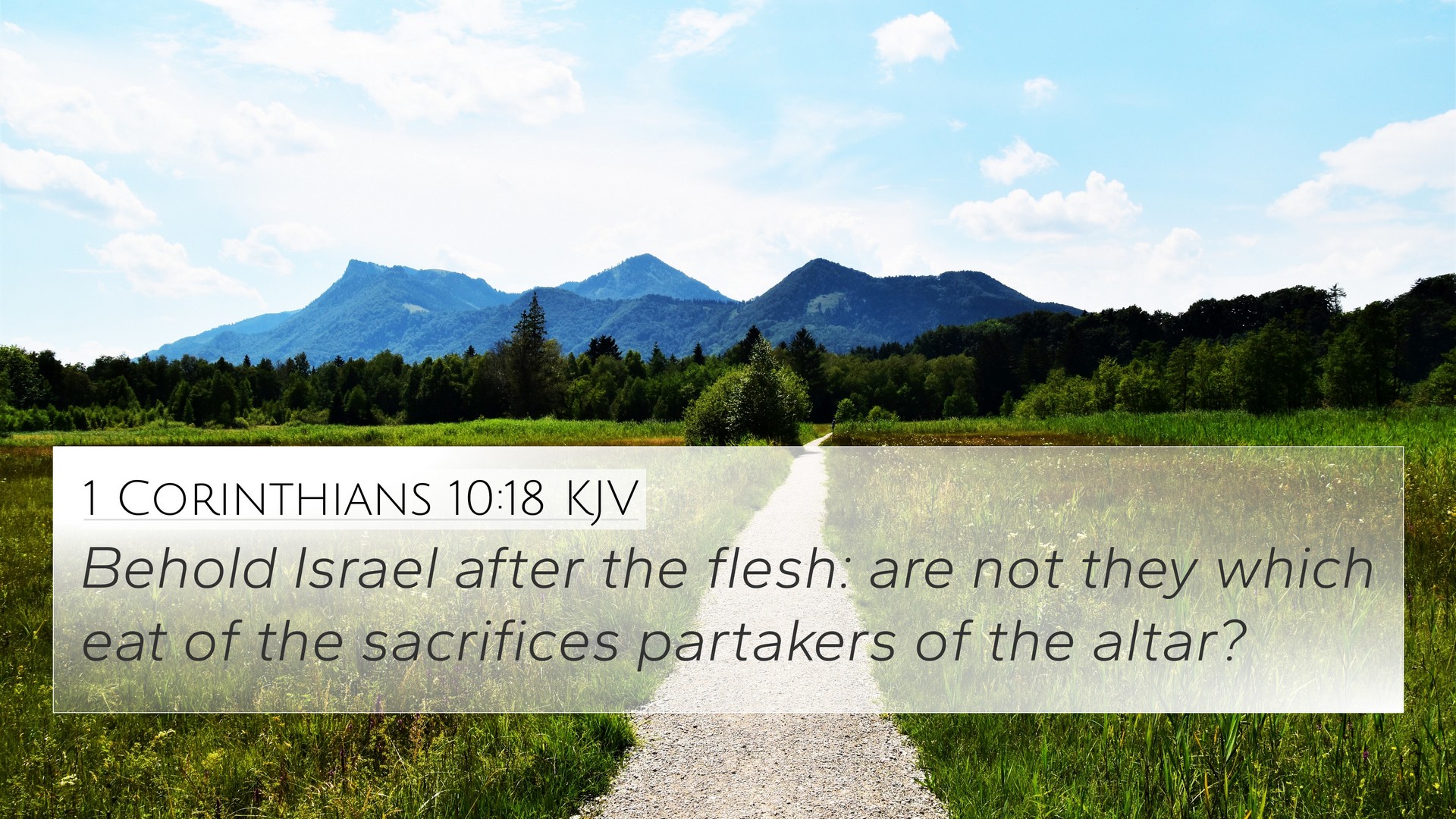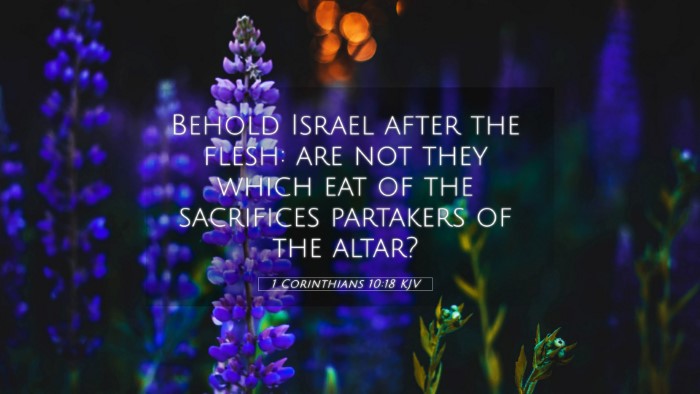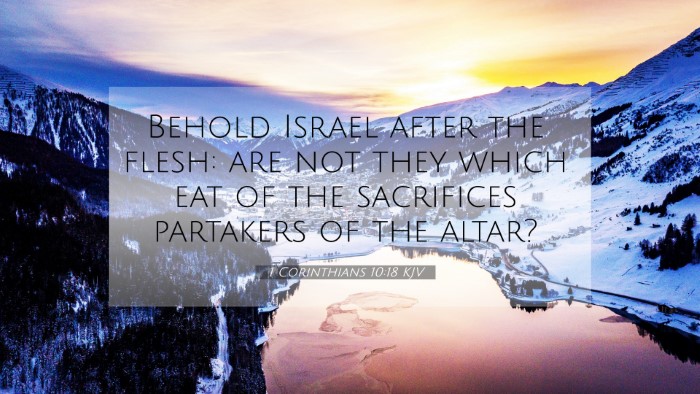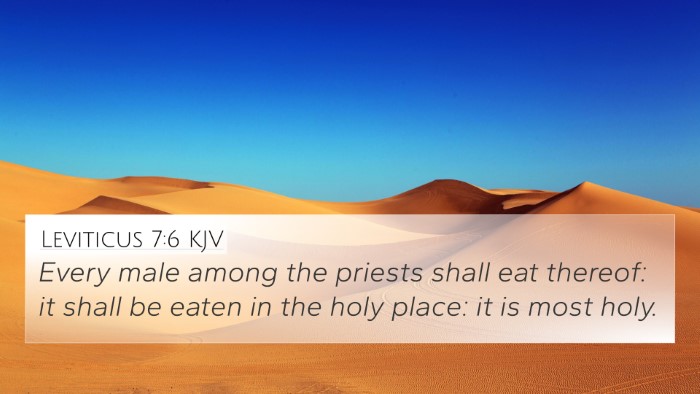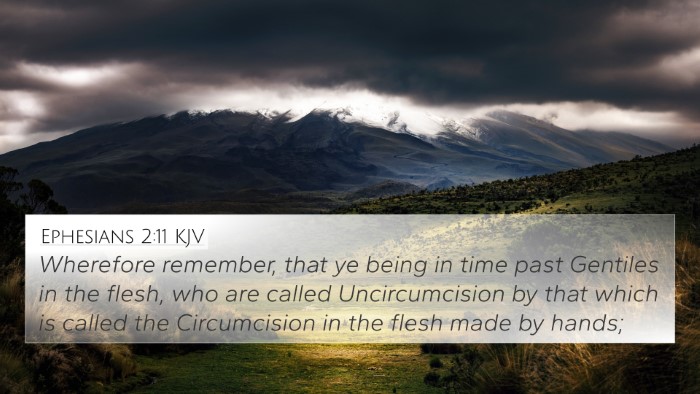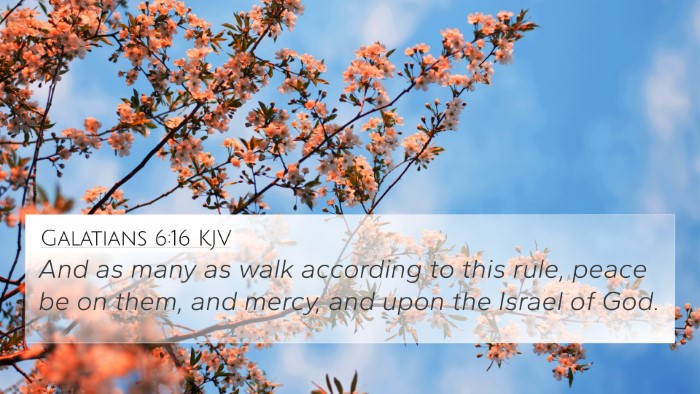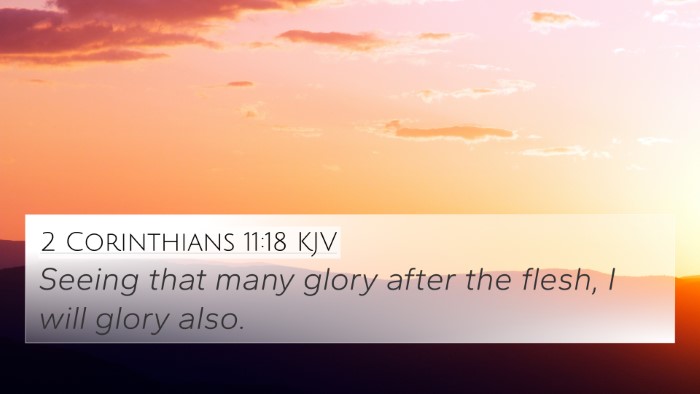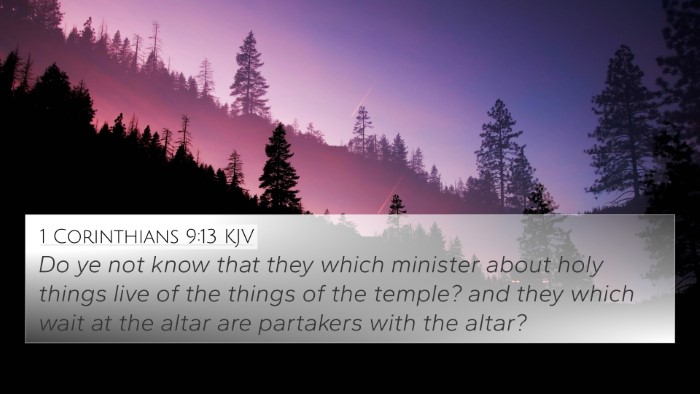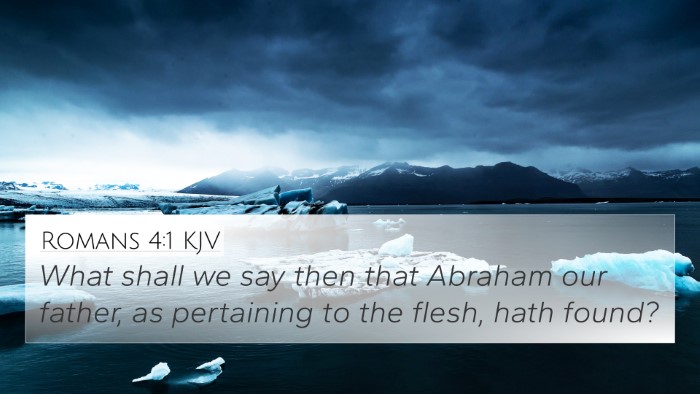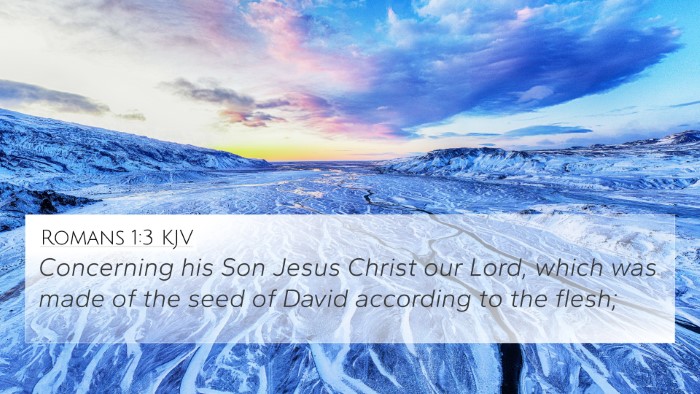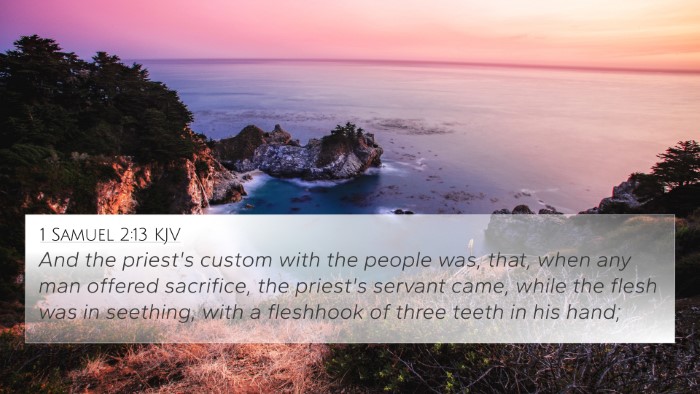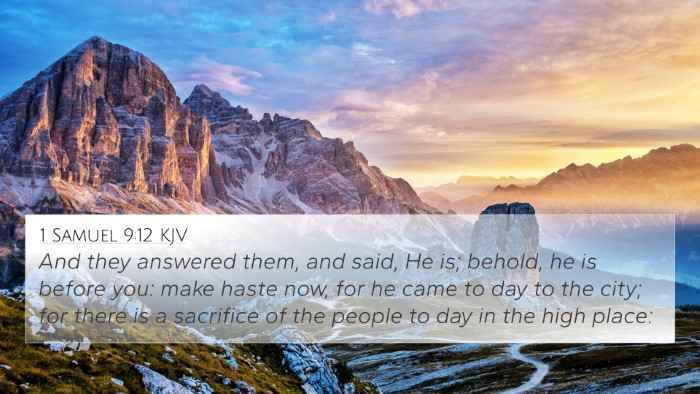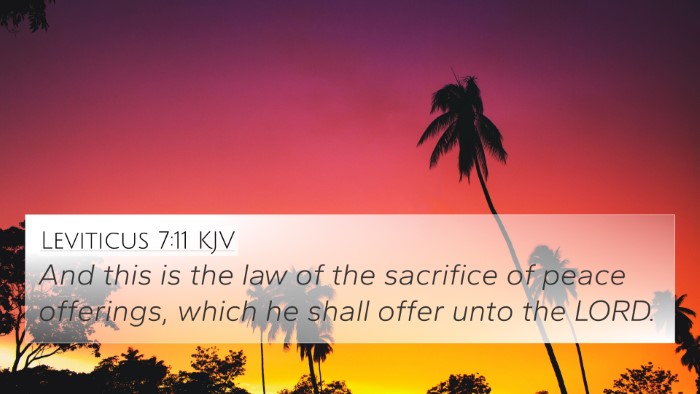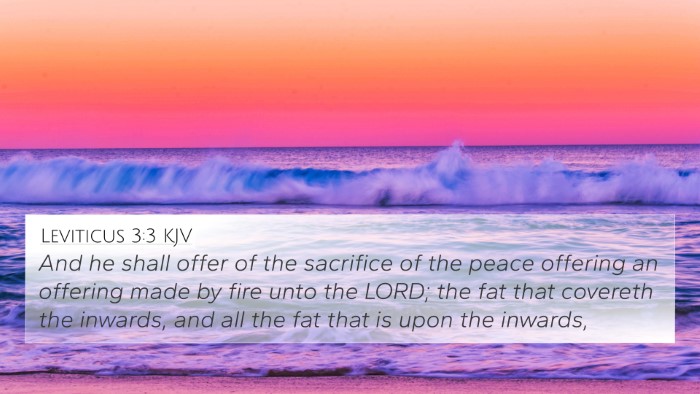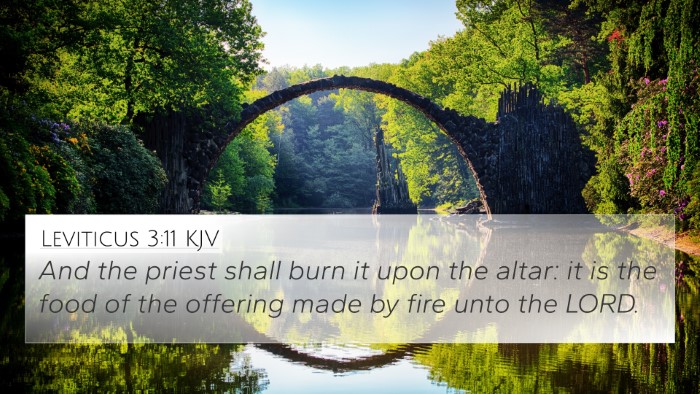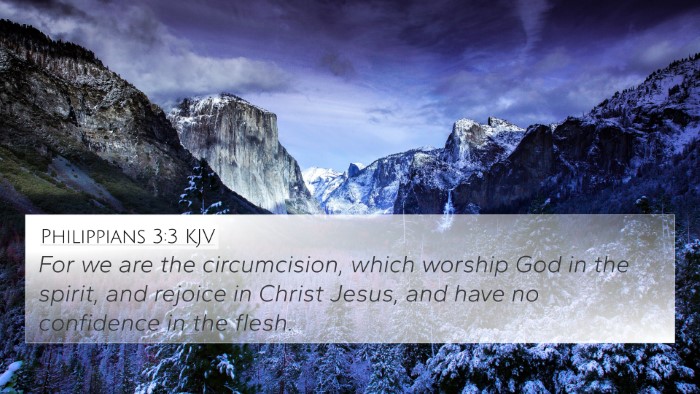Understanding 1 Corinthians 10:18
Verse Reference: 1 Corinthians 10:18
Verse Content: "Behold Israel after the flesh: are not they which eat of the sacrifices partakers of the altar?"
Summary of Meaning
This verse serves to illustrate the concept of participation in sacred activities among the Israelites, drawing a parallel to the communion shared among believers through Christ. The Apostle Paul highlights the significance of offerings and sacrifices in the Old Testament, emphasizing that those who participate in such rituals are intimately connected to the altar and the covenantal relationship with God.
Insights from Commentaries
Matthew Henry's Commentary
Matthew Henry elaborates on the idea that the act of eating from the sacrifices is more than just a physical act; it signifies a deep connection to God’s covenant. He emphasizes that the Israelites granted honor and reverence to God through these sacrifices, and Paul's reference encourages the same spirit within the Christian community.
Albert Barnes' Notes on the Bible
Barnes indicates that this verse underscores the unity and commitment among the Israelites towards God. The sacrifices they offered were a means of acknowledgment and devotion, which should also reflect in the new believers’ lives in Christ. His commentary highlights this connection as a call to recognize the shared benefits and responsibilities in the Christian faith.
Adam Clarke's Commentary
Clarke interprets this verse as a reminder of the Jewish customs relating to sacrifices and their importance in representing shared faith and communion with God. He discusses how the act of partaking from the altar was vital for community cohesion and divine acceptance, which can be likened to the communion believers share through Christ's sacrifice.
Thematic Connections
The central theme of 1 Corinthians 10:18 encapsulates participation in holy communion, drawing attention to how practices in the Old Testament prefigure New Testament truths. Below are key connections and cross-references that relate to this verse:
- Exodus 24:8: "And Moses took the blood, and sprinkled it on the people, and said, Behold the blood of the covenant, which the LORD hath made with you concerning all these words."
- Hebrews 13:10: "We have an altar, whereof they have no right to eat which serve the tabernacle."
- 1 Peter 2:5: "Ye also, as lively stones, are built up a spiritual house, an holy priesthood, to offer up spiritual sacrifices, acceptable to God by Jesus Christ."
- Romans 12:1: "I beseech you therefore, brethren, by the mercies of God, that ye present your bodies a living sacrifice, holy, acceptable unto God, which is your reasonable service."
- John 6:51: "I am the living bread which came down from heaven: if any man eat of this bread, he shall live for ever: and the bread that I will give is my flesh, which I will give for the life of the world."
- Colossians 2:16-17: "Let no man therefore judge you in meat, or in drink, or in respect of an holyday, or of the new moon, or of the sabbath days: Which are a shadow of things to come; but the body is of Christ."
- Luke 22:19: "And he took bread, and gave thanks, and brake it, and gave unto them, saying, This is my body which is given for you: this do in remembrance of me."
- Hebrews 10:14: "For by one offering he hath perfected for ever them that are sanctified."
- Matthew 26:26: "And as they were eating, Jesus took bread, and blessed it, and brake it, and gave it to the disciples, and said, Take, eat; this is my body."
- 1 Corinthians 11:27-29: "Wherefore whosoever shall eat this bread, and drink this cup of the Lord, unworthily, shall be guilty of the body and blood of the Lord."
Practical Applications
Understanding 1 Corinthians 10:18 helps believers appreciate their significance in partaking in communal worship and the shared faith through Christ. By connecting Biblical texts, Christians can cultivate a deeper reverence for their spiritual practices and the implications of their faith. Here are some practical tools and methods for cross-referencing within the Bible:
- Bible Concordance: A valuable resource for finding connections and themes across different verses.
- Cross-Reference Bible Study: Engaging in study groups that focus on parallel verses enhances understanding of scripture.
- Bible Reference Resources: Utilizing tools designed for cross-referencing will help highlight thematic connections.
- Bible Chain References: Following a chain of related verses can reveal deeper insights into scripture's cohesion.
- Identifying Connections Between Old and New Testament: Recognizing the continuity between Testaments solidifies the faith paradigm.
Conclusion
1 Corinthians 10:18 serves as a reminder of our connection through sacred practices in worship and the unity within the Body of Christ. By exploring cross-referencing techniques and the thematic links between scriptures, believers can enrich their understanding of God's Word, thereby enhancing their Christian walk and communal faith.
